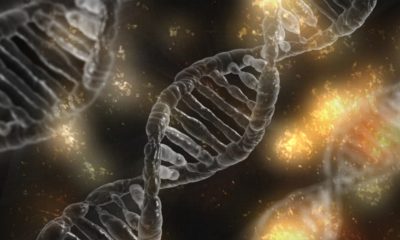How many times have you experienced this? You went to bed early because you felt so tired and sleepy and yet when you wake up the next morning, you still feel tired and sluggish. You might think that you are coming down with something, because you thought that you slept the whole time.
Research on sleep deprivation
Scientists from the University of Surrey in England are conducting research on lack of sleep and its effect on a person’s health. Too much is still unknown on the actual effects of sleep deprivation. Diseases linked to regular lack of sleep include poor brain functions, diabetes, obesity and heart disease. They now have research results which conclude that people with only about six hours of sleep each night for a week have altered genes. These 700 genes each have instructions to build protein, and which can alter the body’s chemistry.
Effects
Professor Colin Smith from the University of Surrey said that the alteration of the genes affects the immune system and the way the body responds to stress and damage and the natural body rebuilding process. It is because the replenishment and replacement of new cells are slowed down.
Their key findings on the effects of sleep deprivation to the immune system and inflammation might lead to linking them to other health problems like diabetes as well as finding a drug to help remove the effects lack of sleep bring to a person. It might also probably lead to finding a way to eliminate the need for sleep.
Health issues from sleep deprivation
Many factors affect sleep. Some people struggle to get some sleep and yet may not have any health-related issues, although tiredness could be felt. But it is true that a continued lack of or too many nights of disturbed sleep could lead to poor health.
Take for example when you experience jet lag. You might experience general malaise and fatigue, headache, upset stomach, and a feeling of being out of sorts.
Normally, an average person needs about seven to eight hours of sleep nightly, although there are people who could manage having less. What makes it different is the feeling that you get from a full eight-hour or a five- to six-hour sleep. It is a known fact the sleep affects a person’s mood. You even see that in babies. People who suffer from clinical depression usually have disturbed sleep, but this is part of their illness. However, regular lack of sleep could lead to depression or anxiety. It could also lower your tolerance for pain.
Possible causes of sleep disturbance
There are some physical evidences why you could be sleep-deprived, such as having insensitive neighbors who create a lot of noise, crying babies, pets sleeping on the same bed, and alcohol or coffee before bed. You might have an undiagnosed GERD or gastroesophageal reflux disorder, which, in layman’s term refer to acid reflux. Beta blockers for high blood pressure, steroids for asthma, Vitamin B6 or B12 are contributors. Supplements such as gaurana and ginseng are stimulants. All sorts of pain, from headaches, toothache, menstrual pain, to fibromyalgia to arthritis could disturb your sleep. You might even be surprised to know that even exhaustion could lead you to lose sleep, unless you take the time to properly unwind before to finally go to bed.















Facebook
Twitter
Pinterest
Google+
LinkedIn
Email